Having explored the platform yesterday, day two of #mtpcon Digital saw attendees and speakers ready and raring to go from the off. We enjoyed keynotes on hacking our careers and inclusive design plus breakout sessions on everything from accessibility, psychological safety and more!
Here’s what we’ve ticked off our list today.
At last night’s afterparty, it was decided (by some very smart people) that instead of merely networking over coffee when doors opened today, we’d also do an omelette challenge. Naturally! Paul Jeffries, Gabrielle Bufrem and Trace Wax were our competitors and it’s fair to say, the challenge was truly eggscellent. We put the finished dishes to a vote and it was Gabrielle who came out victorious – we think it was the bacon fat and the fancy plate that sealed the deal!
 Keynotes
Keynotes
Marking the official start to day two, our first keynote came from Gibson Biddle who got us thinking about the skills we need to be great product managers and to progress in our careers. He asked us to consider our ‘superpowers’ – the things we’re good at and, using Slido, asked a series of questions. The results of which made for an interesting discussion. While some skills weighed heavily, others barely factored at all. “What’s great”, Gibson said, is that “we’re allowed our unique vantage, we’re all different. You don’t have to learn all these skills overnight, there is a progression to this.”
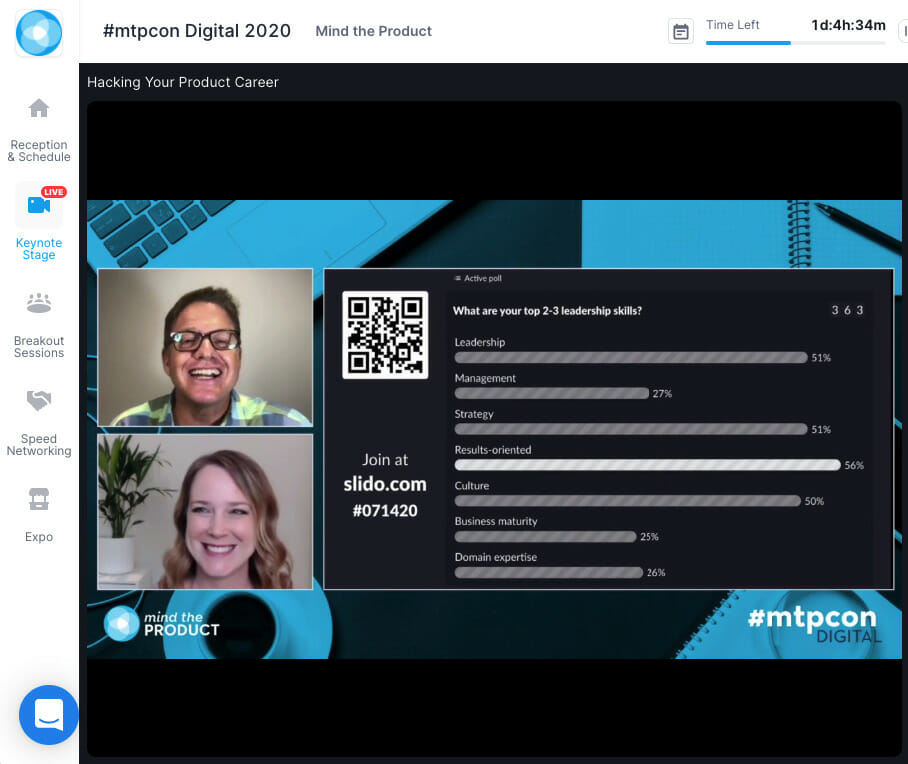 Closing the day, Nancy Douyon demonstrated the power of recognising the Nobility Complex: the explicit and implicit personal, self-serving biases we use when designing products. Drawing on her career experience with companies like Uber and Google she showed how bringing testing to underrepresented groups and moving design away from western stereotypes inevitably leads to more scalable, versatile and accessible products. “Turn assumptions to questions,” she told us, “hire, retain, and be accountable for diverse talent.” And, she explained, “make sure you test your learns in marginalised communities as well in your immediate markets.”
Closing the day, Nancy Douyon demonstrated the power of recognising the Nobility Complex: the explicit and implicit personal, self-serving biases we use when designing products. Drawing on her career experience with companies like Uber and Google she showed how bringing testing to underrepresented groups and moving design away from western stereotypes inevitably leads to more scalable, versatile and accessible products. “Turn assumptions to questions,” she told us, “hire, retain, and be accountable for diverse talent.” And, she explained, “make sure you test your learns in marginalised communities as well in your immediate markets.”
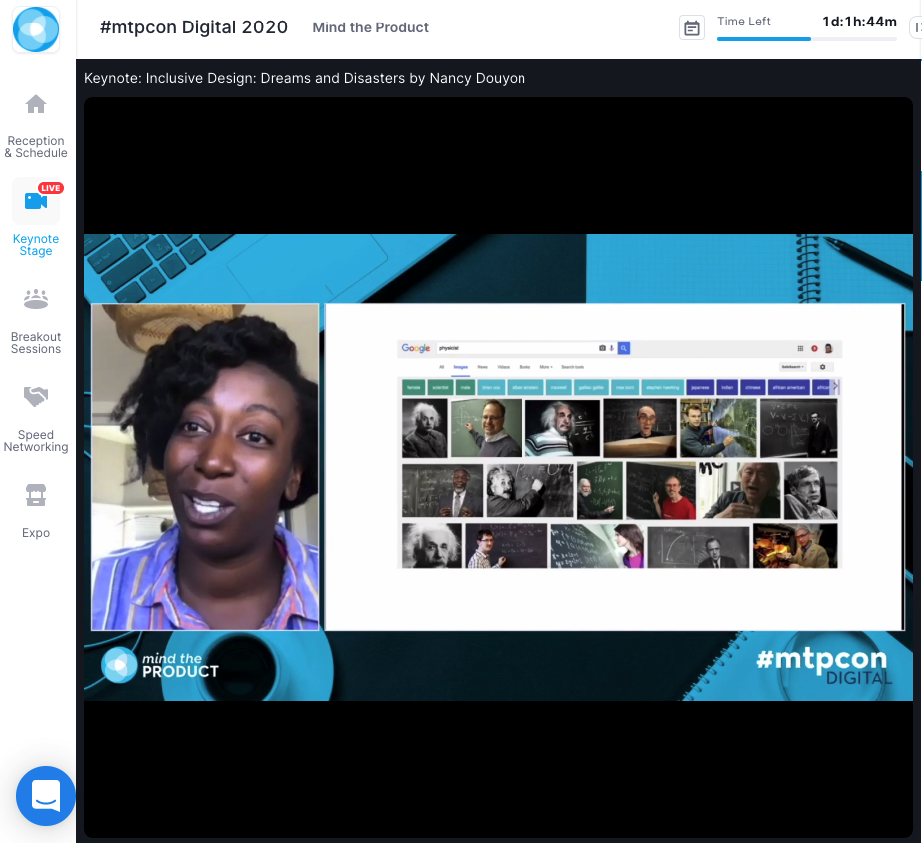 Breakout Sessions
Breakout Sessions
Between the keynotes, attendees joined our breakout speakers for a selection of interactive sessions.
Do Product Managers Have to be Technical?
DeVaris Brown opened his session promising to answer the question ‘does being technical matter?’ and on slide one of his presentation, offered an early spoiler. “The answer to this is yes,” he said. “Do product managers have to be technical? Absolutely. You need engineers to get your job done. You need to communicate with them in a language that they understand so that you can help solve problems more efficiently together.”
 DeVaris then took the group through the things a technical product manager is and is not. Ultimately, he said, “the only difference from a regular product manager and a technical product manager is the audience and the end product.” By the time the session ended, those in the audience who’d arrived thinking they weren’t technical at all realised that they were, in fact, much more technical than they’d previously thought.
DeVaris then took the group through the things a technical product manager is and is not. Ultimately, he said, “the only difference from a regular product manager and a technical product manager is the audience and the end product.” By the time the session ended, those in the audience who’d arrived thinking they weren’t technical at all realised that they were, in fact, much more technical than they’d previously thought.
What No One Told You About Being a Product Leader
Hope Gurion tackled the top five most common blindspots she sees new product leaders encountering, from struggling to gain the trust of the CEO and management to conflict resolution and opportunity cost. She got the audience involved by asking what common challenges they’ve experienced in their roles and to describe successful product teams and leaders they’d seen in action.
Developing as a Product Manager
Petra Wille ran an open and honest panel discussion with two past colleagues, exploring their journeys into product management and how they think about their own professional development. A key point focused on developing a good understanding of your role, and what you’re trying to achieve. Creating a meaningful role description, Petra explained, is actually a powerful alignment tool – it helps you to align upwards to your leaders, sideways to your peers, and inwards to the rest of the organisation.
 “Investing in yourself is completely portable,” she said. “Wherever you go, the things you learn are all yours to keep. You benefit on the investments you make early on in your career throughout your whole career.”
“Investing in yourself is completely portable,” she said. “Wherever you go, the things you learn are all yours to keep. You benefit on the investments you make early on in your career throughout your whole career.”
Creating Psychological Safety in Teams
In her session, Christina Wodtke set out how words are not enough – you have to take action to create a team culture that promotes psychological safety – as set by leaders, created in between people, and within an individual. “Don’t default into norms, you need to set them,” she said. “Everyone brings their own norms on how to give feedback, how to make decisions, and it’s important to set them as a team.” Leaders, she continued, should set clear goals for the team, without dictating how to achieve them. This reduces tension for people wondering what to drive towards while showing individuals that they are trusted to make decisions.
Having Difficult Conversations with Confidence
Denise Jacobs led a hugely popular session on how to go about having those conversations that always feel uncomfortable and difficult. “A lot of these conversations are going to boil down to two things,” she said. “They’re going to boil down to dealing with objectives and goals and also alignment.” As soon as the team you’re working in is not aligned, she explained, that’s when you start to have a problem.
 Denise shared practical advice and tips to make these issues feel just that little bit easier to tackle, covering everything from how we see ourselves to how we can physically and mentally prepare to have those discussions we so often dread.
Denise shared practical advice and tips to make these issues feel just that little bit easier to tackle, covering everything from how we see ourselves to how we can physically and mentally prepare to have those discussions we so often dread.
How to do Accessibility Without Slowing Down
Jonathan Hassell introduced his session on accessibility with some very important facts:
- 20% of the population is permanently impaired
- 20% are progressively impaired
- 2% are temporarily impaired
- AND we’re all currently situationally impaired!
 “COVID has changed things a lot,” he said, “which means that more older people are using the internet than before, which is why accessibility is more important than ever.” But, at all times, he continued, accessibility is vital and something we should work hard to embed throughout our entire organisations.
“COVID has changed things a lot,” he said, “which means that more older people are using the internet than before, which is why accessibility is more important than ever.” But, at all times, he continued, accessibility is vital and something we should work hard to embed throughout our entire organisations.
Socials
On day one we discovered Martin Eriksson’s secret to the Cyan Margarita in our first cocktail masterclass, discovered new beers with MTP’s Will and Shaun and put our brains to the test in a quiz with Chris and Emily and today, there’s been all of this:
Some chose to wind down after the day with a relaxing yoga session led by product manager and trained yoga instructor, Iris van de Kieft.
Anyone with a problem to solve headed straight to The Bad Advice Salon with our podcast hosts Lily and Randy: And finally, pet owning product people from across the globe gathered their furry friends in a Pet Product Showcase with myself and Analisa:
And finally, pet owning product people from across the globe gathered their furry friends in a Pet Product Showcase with myself and Analisa: Thank you to everyone who joined us today and to our wonderful crew and sponsors for all of their support.
Thank you to everyone who joined us today and to our wonderful crew and sponsors for all of their support.
More to come tomorrow! Find out what at mindtheproduct.com/digital and, if you’re a Mind the Product member, you’ll be able to access all of the incredible keynote talk videos this coming Friday (July 17th) on your membership dashboard. Not yet a member? It’s not too late. Join today!



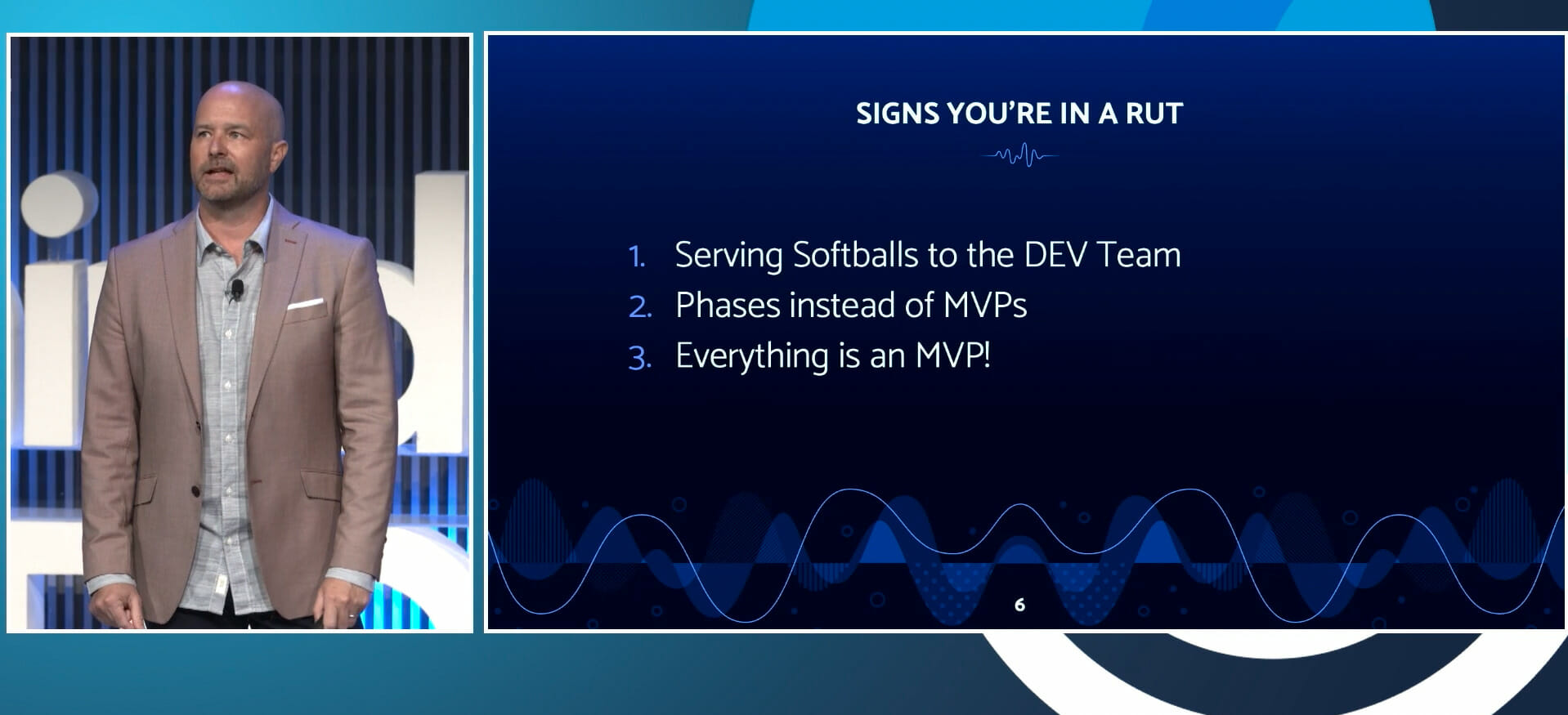

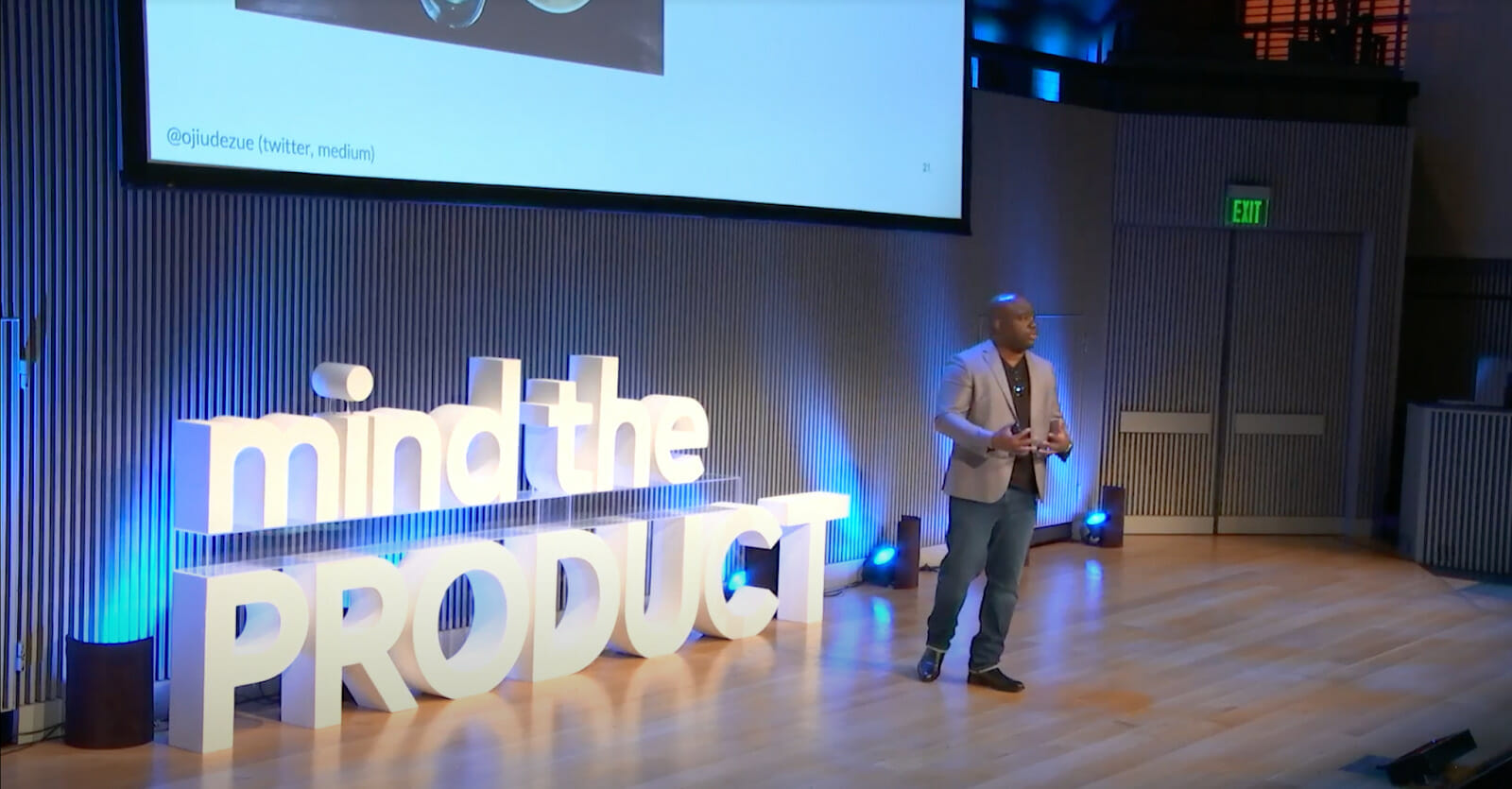

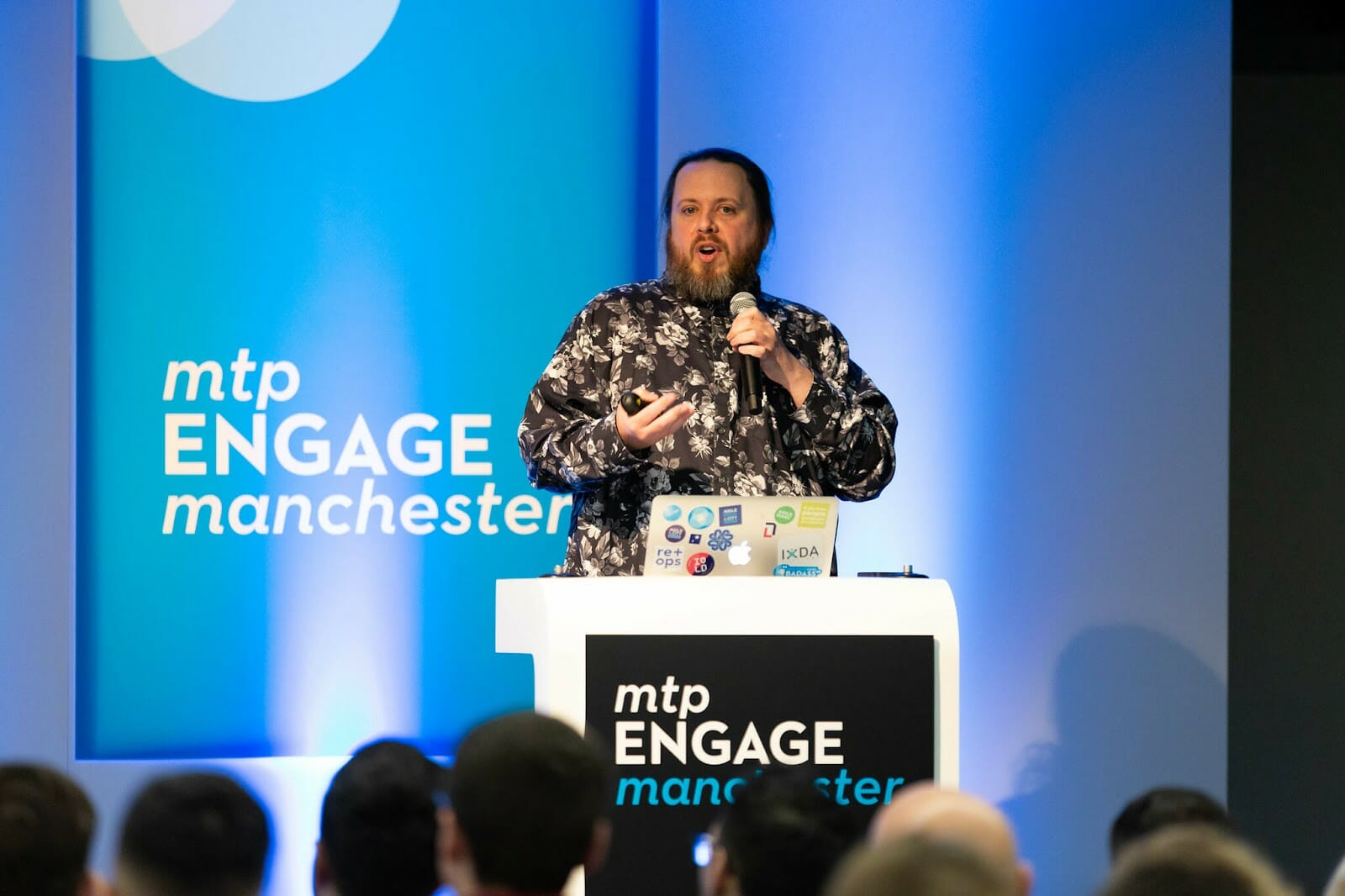



Comments
Join the community
Sign up for free to share your thoughts